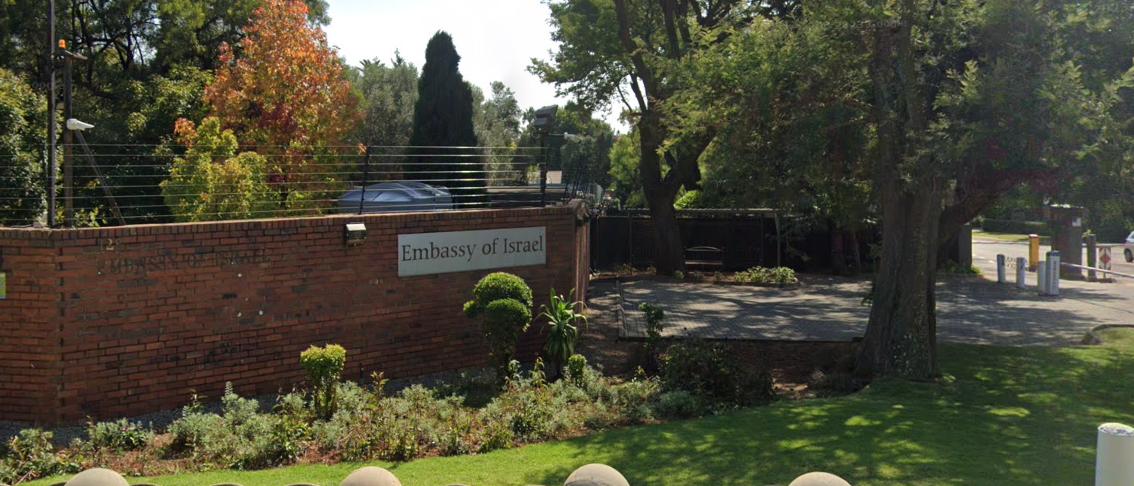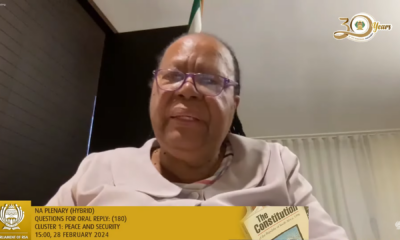
OpEds

South Africa’s not-so-strategic ambiguity on Israel
Published
5 months agoon
By
Steven GruzdWith more flip-flops than a Havaianas store, the South African government isn’t severing diplomatic relations with Israel after all – for now at least. This is in spite of a parliamentary vote to do so last month and a call by a member of parliament to shut the Israeli embassy in Pretoria as the war in Gaza rages on. Parliamentary decisions on foreign policy issues are only advisory, and it’s up to cabinet. To date, cabinet has apparently not discussed the matter, but that doesn’t mean it’s off the table.
Last month, South Africa recalled all its diplomats from Tel Aviv and seemed almost certain to cut ties, especially after the parliamentary vote. The day before that vote, with diplomatic pressure mounting, Israel recalled ambassador Eli Belotsercovsky for consultation. It’s anyone’s guess if or when he’ll return.
South Africa has also recently referred Israel to the International Criminal Court (ICC) for war crimes and genocide.
“At this stage, there’s no decision to completely [cut] ties with the Israeli government, notwithstanding the level of displeasure that the South African government has expressed with respect to the actions of the Israeli government,” said Vincent Magwenya, the spokesperson for President Cyril Ramaphosa. “We have clear separation of powers within our constitutional dispensation. Therefore, it’s quite unprecedented that you’ll have parliament instructing the executive on what to do.”
Ramaphosa’s office issued an anodyne statement: “President Ramaphosa notes and appreciates parliament’s guidance on our diplomatic relations with Israel, particularly with respect to the status of the Israeli embassy in South Africa. The president and cabinet are engaged over the matter, which remains the responsibility of the national executive.”
The minister of international relations and cooperation, Dr Naledi Pandor, told parliament last week, “Breaking off diplomatic relations with Israel will be counterproductive as it will also affect our representative office in Ramallah, Palestine, and by implication, weaken the meaningful role that South Africa can play in the Palestinian cause.”
Rowan Polovin, the national chairperson of the South African Zionist Federation, told the SA Jewish Report, “Parliamentary motions are politically persuasive but not legally binding. Like the National Freedom Party’s motion in March to downgrade diplomatic relations with Israel, the recent EFF [Economic Freedom Fighters] motion to cut off diplomatic ties carries symbolic weight but would have serious practical consequences for South Africa if the executive decided to implement it.
“Of all the important reasons why South Africa shouldn’t cut off diplomatic relations with Israel, including serious impacts on trade and Pretoria’s diplomatic standing, the only argument heard by government was the consequences for South Africa’s representative office in Ramallah,” Polovin said. “It would mean the potential closing of that office and recall of South Africa’s ambassador in Ramallah, and have an impact on South Africans and Palestinians requiring consular assistance in the Palestinian territories. This was the ultimate reason why it hasn’t been implemented, notwithstanding enormous pressure by the African National Congress (ANC) and EFF to do so.
“It should be noted that the South African government seems far less concerned about the impact that its decision – which it did carry out – to recall its ambassador and diplomatic staff in Israel has had on tens of thousands of South Africans living in or travelling in Israel. This shows once again Pretoria’s blatant double-standards on the issue.”
Professor Hussein Solomon from the University of the Free State said, “It looks like South Africa is trying to play both sides, as it does, such as on Russia-Ukraine. There may be ramifications coming from countries like the United States and so on, there may be economic ramifications. So it’s interesting that the ruling party isn’t following the instruction of the ANC and EFF in parliament. I think this is classic Cyril [Ramaphosa] flip-flopping: taking us to the brink, but at the same time not following through. Even if they don’t cut ties, Israel has already pulled its ambassador out. And South Africa has already kickstarted the process in terms of the ICC. So I’m not sure how it can walk back. I don’t think it can.”
Sara Gon at the Institute of Race Relations said, “This is an extraordinarily cack-handed way of walking the ANC government’s stance back. It’s clumsy, like so much else the government does. One can tell that something – I don’t know what – put pressure on them to offer a little fig leaf. Perhaps they want us to take our eye off the fact that three Hamas officials flew in to participate in the Fifth Global Convention of Solidarity with Palestine, which started in Johannesburg on Saturday, 2 December.
“Then to cap it all, Minister in the Presidency Khumbudzo Ntshavheni says government cannot be expected to account for the presence of Hamas in South Africa if its members are in the country on private business,” Gon said. “This isn’t a meaningful comment, and it’s certainly not to placate the Jewish population.”
This isn’t the first time South Africa has displayed not-so-strategic ambiguity when it comes to Israel policy, with the ANC making a decision only for the department of international relations and cooperation (Dirco) to decide something else.
In 2017, the ANC resolved to downgrade its embassy in Tel Aviv to a liaison office to express its displeasure with Israel’s policies. Dirco took no action. But then Ambassador Sisa Ngombane was recalled to South Africa after a violent flare-up on the Gaza border in May 2018. He never went back to Israel. The embassy wasn’t officially downgraded, but the effect was the same, with no ambassador present.
And when Hamas visits South Africa, it meets the ANC, not government. This is sleight of hand – the ANC is the government. This line is intentionally blurred by the party itself.
South Africa’s government has stepped back from breaking off diplomatic relations with Israel. But it faces a lot of pressure to do so from anti-Israel activists and political parties, including the ANC.
The government’s stance seems to be a ploy to win votes in the 2024 elections, particularly in the Western Cape. The ANC is clinging to the illusion that it would have any meaningful say in the Middle East. It’s totally irrelevant.
- Steven Gruzd is a political analyst in Johannesburg. He writes in his personal capacity.









yitzchak
Dec 7, 2023 at 1:44 pm
cack-handed indeed!